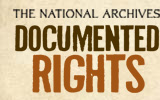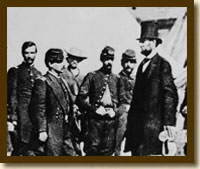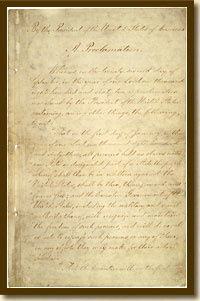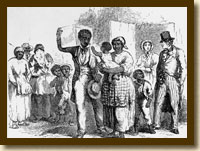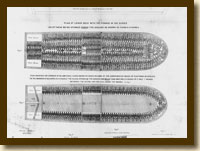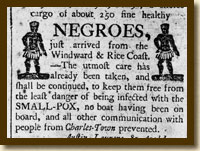Section I: Let My People Go

By the late 18th and early 19th century, the life-long enslavement of Africans and African Americans defined the country’s social, political, and economic character. Slavery was considered a necessary evil by some and a right of property entitlement by others.
Photograph of President Abraham Lincoln and His Generals After Antietam, 1862
Mathew Brady Photographs of Civil War-Era Personalities and Scenes National Archives, Records of the Office of the Chief Signal Officer, Record Group 111 (National Archives Identifier 527118)
The Civil War defined Lincoln’s Presidency, and the issue of slavery became the lightning rod between the North and the South.
Emancipation Proclamation,
January 1, 1863 (facsimile)
Presidential Proclamations National Archives, General Records of the United States Government, Record Group 11 (National Archives Identifier 299998)
President Lincoln issued this milestone proclamation on January 1, 1863, in the midst of the Civil War, announcing that slaves in those states or parts of states still in rebellion as of January 1, 1863, “shall be then, thenceforward, and forever free.” Although the Emancipation Proclamation did not immediately free a single slave, it fundamentally transformed the character of the war
![[A]ll persons held as slaves within any State or designated part of a State, the people whereof shall then be in rebellion against the United States, shall be then, thenceforward, and forever free.--Emancipation Proclamation, January 1, 1863](/exhibits/documented-rights/exhibit/section1/images/emancipation-quote.jpg)

